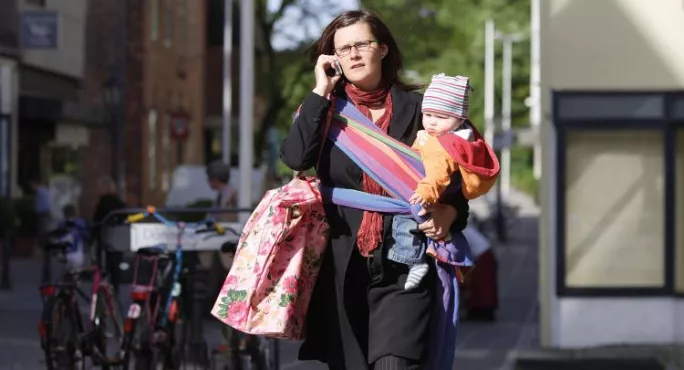There’s a forgotten group in teaching. One whose voice is seldom heard, whose members feel like they’re the underclass of the profession. And yet, their value to teaching is phenomenal.
Who are they, you ask?
It’s the teachers who juggle full-time teaching with the full-time job of being a single parent.
Caroline is one such teacher. She shared her story with me last week.
She has two pre-school children, aged 4 and 19 months, and she works in the infant department of a primary school four days a week. She loves the job and loves being a mum, but the two aren’t harmonious bedfellows.
Money is obviously a major consideration. The cost of running a house on your own is amplified when adding in the cost of childcare. Even with her family to support her, the average cost of childcare is £500 per month – after 30 hours free care. If her family are ill or unavailable, she has to ask for unpaid leave as her nursery won’t take children at short notice. Each additional session at the nursery costs £35 per child per day, so that £70 gone before entering the school gates.
Even on a normal day, the logistics of getting two children out of the door by 6.55am and to the nursery are tricky. Being there to collect them on time is always a problem with meetings over-running. Parents’ evening is a stressful experience: talking positively to your pupils' parents when you feel that you have abandoned your own children for the night.
Marking is squeezed into any additional time she has – breaks and lunch times are a no no – there’s too much to do. And books can’t go home as little fingers consider them crayon fodder.
Throughout our conversation, I could sense Caroline’s pervading sense of guilt: guilt for leaving school early to pick her children up at 5.30pm, guilt for ignoring her children and leaving them so late in nursery; guilt for doing school work at home or at weekends; the guilt of not doing enough “mum” things, and not doing the teaching thing well; guilt when school is chosen over children, or children are chosen over school; guilt for not being in school five days a week.
She describes getting the children home after nursery, running the bath and getting them to bed. “The children leave in the dark and come home in the dark and then go to bed!” But they don’t sleep through the night, so she’s also sleep deprived when she gets up in the morning to teach 30 children all day, every day.
Caroline also refers to the perception of others towards her. She’s worried that people think she’s both a bad mother and a bad teacher.
And then Caroline reaches a weekend – or not. She doesn’t get one. What should be a time of rest is anything but. Being a mum dominates and soon it’s Monday again.
And yet, when you meet Caroline, she seems happy. She’s great with the children and, strategically, plays a vital role in the school.
So many will be familiar with Caroline’s story. So many live Caroline’s story. It’s these people who keep our profession alive.
So, personally I’d like to thank Caroline, and all the others in the country like her, from the bottom of my heart.
Colin Harris led a school in a deprived area of Portsmouth for more than two decades. His last two Ofsted reports were “outstanding” across all categories
To read more of his articles, visit his back catalogue




